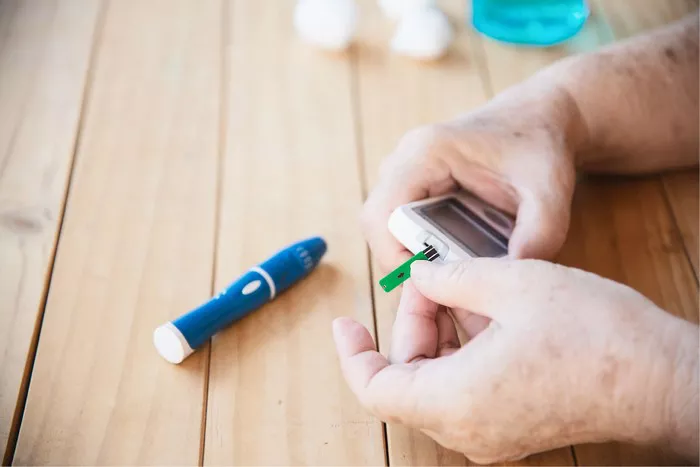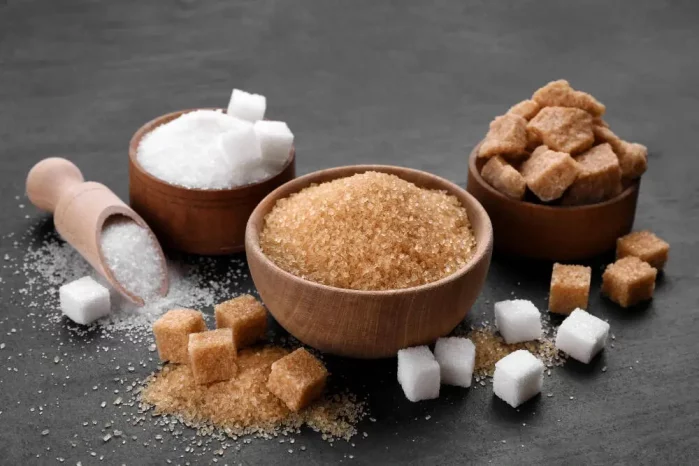A Comprehensive Approach to Reversing Insulin Resistance Quickly and Effectively
Insulin resistance is a condition where the body’s cells become less responsive to the hormone insulin, which is crucial for regulating blood glucose levels. This resistance can lead to a myriad of health issues, including type 2 diabetes, cardiovascular disease, and metabolic syndrome. With the increasing prevalence of insulin resistance, finding effective and rapid ways to combat this condition has become a priority for healthcare professionals and patients alike. This article explores the fastest ways to cure insulin resistance, focusing on lifestyle modifications, dietary changes, exercise regimens, and potential medical interventions.
Understanding Insulin Resistance
Before delving into the methods to cure insulin resistance, it is essential to understand what it is and how it develops. Insulin is produced by the pancreas and helps cells absorb glucose from the bloodstream to be used for energy. When cells become resistant to insulin, glucose builds up in the blood, leading to higher blood sugar levels and forcing the pancreas to produce more insulin. Over time, this can lead to type 2 diabetes as the pancreas becomes unable to keep up with the high demand for insulin.
Several factors contribute to insulin resistance, including genetic predisposition, obesity, a sedentary lifestyle, and poor dietary habits. Inflammation and oxidative stress also play significant roles in the development and progression of insulin resistance.
Lifestyle Modifications
1. Weight Loss
Weight loss is one of the most effective ways to improve insulin sensitivity quickly. Excess body fat, particularly visceral fat around the abdomen, is closely linked to insulin resistance. Studies have shown that even a modest weight loss of 5-10% of body weight can significantly enhance insulin sensitivity.
Strategies for Effective Weight Loss:
- Caloric Deficit: Creating a caloric deficit through diet and exercise is crucial. This can be achieved by reducing caloric intake and increasing physical activity.
- Balanced Diet: A diet rich in whole foods, including fruits, vegetables, lean proteins, and healthy fats, can promote weight loss and improve insulin sensitivity.
- Intermittent Fasting: Intermittent fasting has been shown to improve insulin sensitivity by reducing insulin levels and promoting fat loss.
2. Regular Physical Activity
Exercise is another powerful tool in combating insulin resistance. Physical activity helps muscles absorb glucose more efficiently and reduces the overall need for insulin. Both aerobic exercise and resistance training have been shown to improve insulin sensitivity.
Recommended Exercise Regimens:
- Aerobic Exercise: Activities such as walking, jogging, cycling, and swimming can help lower blood glucose levels and improve insulin sensitivity. Aim for at least 150 minutes of moderate-intensity aerobic exercise per week.
- Resistance Training: Strength training exercises, such as weight lifting, can increase muscle mass, which in turn enhances glucose uptake. Aim to include resistance training sessions at least two days per week.
- High-Intensity Interval Training (HIIT): HIIT involves short bursts of intense activity followed by rest periods. This type of exercise has been shown to be particularly effective in improving insulin sensitivity in a shorter amount of time.
3. Stress Management
Chronic stress can lead to elevated cortisol levels, which contribute to insulin resistance. Managing stress through various techniques can have a positive impact on insulin sensitivity.
Effective Stress Management Techniques:
- Mindfulness and Meditation: Practices such as mindfulness meditation can help reduce stress and improve overall well-being.
- Yoga: Yoga combines physical activity with stress reduction techniques, making it an excellent option for improving insulin sensitivity.
- Adequate Sleep: Ensuring sufficient and quality sleep is crucial, as poor sleep can exacerbate insulin resistance.
Dietary Changes
1. Low-Carbohydrate Diets
Reducing carbohydrate intake can help lower blood glucose levels and improve insulin sensitivity. Low-carbohydrate diets, such as the ketogenic diet, have been shown to be particularly effective in reversing insulin resistance.
Benefits of Low-Carbohydrate Diets:
- Reduced Blood Glucose Levels: By minimizing carbohydrate intake, blood glucose levels remain more stable, reducing the need for insulin.
- Weight Loss: Low-carbohydrate diets often lead to significant weight loss, which further enhances insulin sensitivity.
- Improved Lipid Profile: These diets can improve cholesterol levels and reduce triglycerides, contributing to better overall metabolic health.
2. Mediterranean Diet
The Mediterranean diet, rich in fruits, vegetables, whole grains, lean proteins, and healthy fats (such as olive oil and nuts), has been shown to improve insulin sensitivity and reduce the risk of type 2 diabetes.
Key Components of the Mediterranean Diet:
- Healthy Fats: Emphasis on monounsaturated and polyunsaturated fats, which can improve insulin sensitivity.
- High Fiber: High-fiber foods, such as vegetables, fruits, and legumes, help stabilize blood sugar levels.
- Antioxidants: The diet is rich in antioxidants, which reduce inflammation and oxidative stress, both of which are linked to insulin resistance.
3. Anti-Inflammatory Foods
Inflammation plays a significant role in insulin resistance. Consuming anti-inflammatory foods can help reduce inflammation and improve insulin sensitivity.
Examples of Anti-Inflammatory Foods:
- Fatty Fish: Rich in omega-3 fatty acids, which have anti-inflammatory properties.
- Berries: High in antioxidants and fiber.
- Green Leafy Vegetables: Packed with vitamins, minerals, and antioxidants.
- Nuts and Seeds: Contain healthy fats, fiber, and antioxidants.
4. Probiotics and Prebiotics
The gut microbiome plays a crucial role in metabolic health. Probiotics (beneficial bacteria) and prebiotics (foods that feed these bacteria) can improve gut health and enhance insulin sensitivity.
Sources of Probiotics and Prebiotics:
- Probiotics: Yogurt, kefir, sauerkraut, kimchi, and other fermented foods.
- Prebiotics: Fiber-rich foods such as garlic, onions, leeks, asparagus, and whole grains.
Medical Interventions
While lifestyle and dietary changes are fundamental to reversing insulin resistance, medical interventions can also play a role, particularly for those with severe insulin resistance or who have not responded adequately to lifestyle modifications.
1. Medications
Several medications can help improve insulin sensitivity:
Metformin
Metformin is a commonly prescribed medication for type 2 diabetes that helps reduce glucose production in the liver and improves insulin sensitivity. It is often considered the first-line treatment for insulin resistance.
Thiazolidinediones (TZDs)
TZDs, such as pioglitazone, improve insulin sensitivity by targeting the peroxisome proliferator-activated receptor-gamma (PPAR-γ) pathway. These medications can be effective but may have side effects, such as weight gain and fluid retention.
GLP-1 Receptor Agonists
Glucagon-like peptide-1 (GLP-1) receptor agonists, such as liraglutide, improve insulin secretion, reduce appetite, and promote weight loss. These medications can enhance insulin sensitivity indirectly by aiding weight loss and improving glucose metabolism.
2. Bariatric Surgery
For individuals with severe obesity and insulin resistance, bariatric surgery can be a highly effective intervention. Procedures such as gastric bypass and sleeve gastrectomy can lead to significant weight loss and dramatic improvements in insulin sensitivity.
Benefits of Bariatric Surgery:
- Rapid Weight Loss: Significant and sustained weight loss can quickly improve insulin sensitivity.
- Hormonal Changes: Surgery can lead to favorable changes in gut hormones that regulate glucose metabolism.
- Long-Term Outcomes: Many patients experience long-term remission of type 2 diabetes and improvement in overall metabolic health.
3. Nutritional Supplements
Certain nutritional supplements have been shown to improve insulin sensitivity:
Berberine
Berberine is a natural compound found in several plants that has been shown to improve insulin sensitivity and lower blood glucose levels. It works similarly to metformin by reducing glucose production in the liver and enhancing glucose uptake in tissues.
Magnesium
Magnesium is involved in glucose metabolism and insulin action. Supplementing with magnesium has been shown to improve insulin sensitivity, particularly in individuals with low magnesium levels.
Omega-3 Fatty Acids
Omega-3 fatty acids, found in fish oil supplements, have anti-inflammatory properties and can improve insulin sensitivity.
Monitoring Progress
Monitoring progress is crucial to ensure that interventions are effective and to make necessary adjustments. Regular check-ups with a healthcare provider, along with self-monitoring of blood glucose levels, can help track improvements in insulin sensitivity.
Key Metrics to Monitor:
- Fasting Blood Glucose Levels: A measure of how well blood sugar is controlled overnight.
- Hemoglobin A1c: Reflects average blood glucose levels over the past 2-3 months.
- Insulin Levels: Can indicate how much insulin the pancreas is producing and how well the body is responding to it.
- Weight and Body Composition: Tracking weight and body fat percentage can help assess the effectiveness of weight loss interventions.
Conclusion
Reversing insulin resistance requires a multifaceted approach that includes lifestyle modifications, dietary changes, exercise, and, in some cases, medical interventions. The fastest way to cure insulin resistance is to implement these strategies simultaneously and consistently. Weight loss, regular physical activity, a healthy diet, stress management, and, if necessary, medications or surgery, can collectively lead to significant improvements in insulin sensitivity.
It is important for individuals to work closely with their healthcare providers to develop a personalized plan that addresses their unique needs and circumstances. By taking proactive steps and making sustainable changes, it is possible to reverse insulin resistance and improve overall health and well-being.
Related topics:
Do You Know the A1c Level at Which Insulin Therapy is Required?
























